Elemental and Personal
The Difference Between Pulp Heroes and Superheroes, and Why We Need Both
Following the previous post on Batman and the Shadow (with a last-minute appearance by the Punisher), I thought it best to add a few words on the difference between pulp heroes and superheroes. Note that I am not saying either type is better or worse than the other; that is not the point, and it obscures the valuable work of understanding and writing in both of these genres. Superheroes owe a debt to the pulp heroes just as the fiction of the Middle Ages owes a debt to the myths that came before.
Most will, of course, point to the Greek and Roman myths being the archetypes which Medieval fiction built upon. A few may even remember and gesture to the Norse myths due to Marvel’s use of them for their superhero universe. Unfortunately, this leaves a significant bit of myth untouched, as well as an entire genre of fiction forgotten.
This would be none other than Celtic myth and the fiction of the Middle Ages. The latter is often divided into the Matter of England (Legends of King Arthur), the Matter of France (the chansons de geste and the Carolingian Cycle – including works from Italy), and the Matter of Rome (romanticized versions of Ancient Greek and Roman myths that left most of the original material by the wayside – it was the Victorian fiction of its time, you might say). There are other stories in this canon but it would take an in-depth course to even bring them up.
Suffice it to say, the writers of both the pulps and superhero fiction were far more conversant with these stories than we are today. Of the material listed above, only the Legends of King Arthur remain in the popular consciousness at present. You would have to either be a student of Medieval literature or a reading omnivore (author raises hand) whose family (extended and immediate) or guardians were voracious literates to even know these tales exist.
Part of the reason past generations knew of these stories and we do not is due to schooling; a modern college student could not pass the tests a high school student at the turn of the 20th century had to pass, due largely to the fact that we moderns have lost much knowledge learned in those times. The teachers expected their students to be familiar with a variety of subjects which everyone knew through reading in their spare time, or through grade school assignments, Sunday school lessons, and/or use of the local libraries. Knowledge was precious and, if you couldn’t pay to learn it, it wasn’t considered unusual for you to teach yourself.
Once you can read, you can quite literally teach yourself anything. Reading opens doors otherwise locked not only because it provides knowledge (you need to read to bake a fancy recipe, after all) but because it teaches you to think. Mathematics does the same, which is why complaints about how useless learning algebra is compared to learning how to file taxes is itself a mark of lost knowledge. You learn critical thinking skills by exercising your mind in higher mathematics (which you may need if they are related to a career of your choice), just as you learn to think by studying how others think through the written word.
While this seems to digress from the point, I assure you it does not. Familiarity with other people, other cultures, and other modes of thinking allow a writer the flexibility to build their own characters. It allows them to speak to their audience, both those living and those not yet born. If it did not, we would not have the Legends of King Arthur, the stories of Robin Hood, or retellings of Ancient Greek myths whispered in our ears even now.
So, on that note, how are we to judge the more recent heroes of America’s fictional canon created over the last century? First, it is important to remember that America is a young country. To us as individuals it is old, being nearly two-hundred-fifty years in this world as a nation.
It is, however, surrounded by a world largely filled with nations that have identities stretching back millennia. Despite the Native American myths we have, these tales do not have the same force and fascination as do those more solidly formed myths from the Old World. This is not racism; it is a result of the simple fact that these tales were never written down and, therefore, not able to develop a more definite shape.
We know Loki better than Coyote because the Norse myths were recorded hundreds of years ago, while Coyote’s tales differ by tribe and were only set down in writing when European settlers arrived. This is a lamentable loss for Americans personally and it is part of the reason why the rest of the world tends to consider the United States an adolescent throwing its parents’ money at everything in sight. Americans personally may respect the Native American tribes and wish our settlement of the continent had gone differently, but most of Europe and Asia do not and could not care less about them now any more than they did in 1776.
To the rest of the world, America appears young and foolish. Or, to borrow a phrase from TVTropes, we’re too dumb to live. The fact that we are “young” compared to them only makes us look even more worthy of contempt. Our history is to theirs as a child’s is to an adult’s; they have seen more, done more, and lived through more than us. And we Americans think we’re going to change the world? From their perspective, that idea is insane. They have had millennia to shape the world, and we think we’re going to do it in two hundred years?
Not to brag, but Americans got to the moon ahead of everyone else, developed a vaccine for Polio, wiped out smallpox, and did a few other impressive things in their short history. This is one reason why Americans are presently being told to navel gaze at all that is wrong in their past. You can’t reach for the stars if you are convinced by (self-engineered) self-pity that you are the scum of the earth and should crawl into the nearest hole to die like the wretch you are said to be, after all. We might not be completely unjustified in thinking we can change the world, though we should certainly be careful in how we attempt to do so.
From the outset, the colonists who came to America were determined to be as well-educated as those in their motherlands. If Americans could be better educated than anyone else in the world, that would be even better. Part of an education – part of a culture – is its stories. Its myths, fairy tales, and legends. We had the myths of the Native Tribes, but those alone would not impress the rest of the world. We needed our own canon of literature, our own body of works. Our own stories to give us a united culture and national shape.
The pulp heroes are part of this. They are, by and large, elemental or primal heroes. They have no past, not really, and they don’t need one. We don’t need to know where Conan was born, how old John Carter is or even if the Carters of Virginia are blood relatives to him. Judging by his statements he does not believe they are actually related to him, but he loves a couple of the children and treats them as family regardless.
As stated in the previous post, the Shadow’s raison d’erte is unimportant, so we don’t need to know it. Aside from his murdered brother and his nephew, the Lone Ranger’s family and upbringing has hardly any bearing on his actions within his own series. He is the wandering hero, a Don Quixote searching for chivalry in an age that is fast transforming and which runs the risk of forgetting the lessons of the past.
These heroes are all larger than life. Their pasts are sketched thinly or left out entirely and their personalities only matter once their adventures start. We don’t need to know anything more about them than we need to know how the Greek Furies came to be, the childhood of Zeus, or what Athena thinks of being born from her father’s mind. What happens after the pulp heroes’ adventures start is what is important, not what happened before.
For superheroes, the reverse is true. Just as in the Legends of King Arthur, what happens before the adventures begin is as important, if not more so, than what occurs afterward. The knights of the Round Table and the Peers of Charlemagne are not elemental forces, they are humans. Men born and bred, affected by their environment, their faith (or lack thereof), their nurture, and their society. They are not personalized forces of nature as the old gods and “Old Ones” were, as the Fair Folk are. They are men; men just like the readers of their tales or those who sit in the theater watching them “beat the bad guys.”
Do enough research about Arthurian legend, and you inevitably hear the argument that various knights are adapted from Celtic myth. Celtic myth, too, has heroes affected by their birth and the lives they lead before the “official” adventures start. Cu Chulainn’s story starts with his birth and his given name is Setanta. He earns the name Cu Chulainn or “Hound of Chulainn” after killing the black smith’s dog when it mistakes him for an intruder and tries to kill him.
Conan, the Lone Ranger, the Shadow, and even John Carter began as impersonal forces. These either became human (John Carter), are representative of a barbarian past long lost to history (Conan), are reminders of our European heritage (the Lone Ranger), or beings that at least don the appearance of humans at need (the Shadow). Carter for certain becomes more human the longer his adventures go on, shown by his marriage to Deja Thoris and the founding of his family with her. The Shadow has no such romance with Margo Lane because as much as she loves him, his position as an avatar of Justice precludes him from a life beyond the one which he possesses.
This is what makes the pulp heroes primal or elemental heroes beyond the span of mortal ken. And as some knights of Camelot are supposed to have been reincarnations of Celtic myths, superheroes became the courtly incarnation of the pulp hero. Batman is the human version of the Shadow, as seen previously; the Shadow is an avatar of Justice, whereas Batman is the Dark Knight. Bruce Wayne is a human fighting for justice but who has hard limits on what he can and cannot do if he is to hold to the path of chivalry. He can bend the rules occasionally but only occasionally. If he breaks them, then he may not be able to stop doing so.
The Shadow is not bound by such laws because he is a physical servant or avatar of the primal force of Justice. Even in pagan times it was understood that none could escape justice or vengeance, the latter of which is not the same as revenge in the case of (most) superhero stories. Revenge means a human takes justice into his own hands to satisfy his wrath, which in fact does nothing but perpetuate a cycle of death and sorrow, since man cannot channel justice perfectly. It is a force beyond and outside of him – hence “Vengeance is mine, saith the Lord.” Whether you believe in God or not, this is why revenge is specifically forbidden for Christians.
Vengeance or avenging a wrong in the sense certain superheroes use it means that the perpetrators are brought in legally to face the consequences of their actions from those given authority by the Author of all things through their position in the legal system of a society. The Avengers, for instance, do not seek revenge but vengeance for wrongs committed. In this human sense, vengeance means to “bring someone in alive for trial, to receive justice at the hands of those who have the authority from Above to dispense it as carefully and accurately as possible.” On the other hand, human revenge means: “You killed my father, prepare to die!”
The latter, as The Princess Bride shows, leaves one empty. The former gives purpose and form to one’s life – so long as one holds one’s natural concupiscence in check.
This is why superheroes do not kill as a matter of course and why knights of the Round Table only killed in just combat or war. One of Lancelot’s great sins occurs in the rescue of Guinevere from being burned at the stake. In the melee he was so blind with rage that he killed indiscriminately. Two of those he murdered were Gaheris and Gareth, Gawain’s younger brothers.
Gareth idolized Lancelot and considered him a personal hero. Moreover, he and Lancelot were friends. He and Gaheris were both unarmed when Lancelot struck them down because they disagreed with the Queen’s fate. Lancelot’s blind fury and passion pushed him out of the path of chivalry and made him no better than a common criminal. He was no longer a near-perfect knight not only due to his affair with the Queen, but because he lost his head and killed unarmed men who were among his closest friends.
Gawain is in even worse straits after this happens. He swears revenge on Lancelot for murdering Gareth and drags Arthur into combat against Lancelot in France, allowing Mordred to seize the throne while they are gone. Yet even then, depending on which version of the tale one reads, Gawain only forgives Lancelot after being defeated and mortally wounded. Revenge destroys not only the person seeking it, but entire societies and nations as well.
For this reason, Batman cannot kill because once he starts, he will take all of Gotham down in flames with him. The Shadow can kill criminals in their strongholds with elaborate schemes to reflect their own crimes because he is an unstoppable force that cannot be kept out of any domicile or domain. A man cannot do this himself without becoming the Punisher, who kills violent criminals in an effort to punish himself as well as them. The three form a triad of archetypes: the knight, the elemental force, and the man driven into hell by a desire for revenge against the universe and himself.
Understanding these archetypes is key to understanding why the pulp heroes and superheroes are so effective for American audiences. It is also necessary to understand and write better stories. The United States of America had the North American dream-stories, her fables from Africa and those that were homegrown. She had her own novels and serials, and she had inherited a great many things from Europe.
But she did not have her own elemental forces from her own myths, nor did she have her own knights of the Round Table or Peers of the Realm. Not until the 20th century, when she had accumulated some extra history and established herself as a national power. Then she had the artists whose well-trained imaginations and intellects spun for us a legendarium and mythology that is uniquely ours and none else’s.
Conan, The Lone Ranger, John Carter, and the Shadow are our mythic heroes. They are larger than life and beyond life as we mere mortals can understand or live it. The superheroes are our knights, gifted and/or cursed by seeming chance. These powers lift them into a position above other men to fight “the battles (ordinary men) never could,” just as the order of knighthood conferred certain responsibilities and codes of conduct upon those who swore their oaths to the king and the Church.
Superheroes are the Matter of America. They are our Knights of the Round Table, our Peers of the Realm, our Medieval epics and Renaissance tales all rolled into one. It is for this reason that they are worth studying, just as well as the pulp heroes are, both because they will teach us more about ourselves and because it will help us learn how to tell a good story. The fiction of a nation, from the great epics on down to the shortest fairy tale, tell the people of that country who they are, where they came from, and where they wish to go. That is why these characters are valuable and why we should do our best to respect and study them both, even if we prefer one to the other.
Let’s roll up our sleeves and get to work, shall we? We’ve started to fall behind, and that just won’t do. There is a new frontier here waiting for us to explore, and if we waste any more time – well, it might still be there, but we won’t be interested in the adventure by that point.

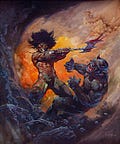


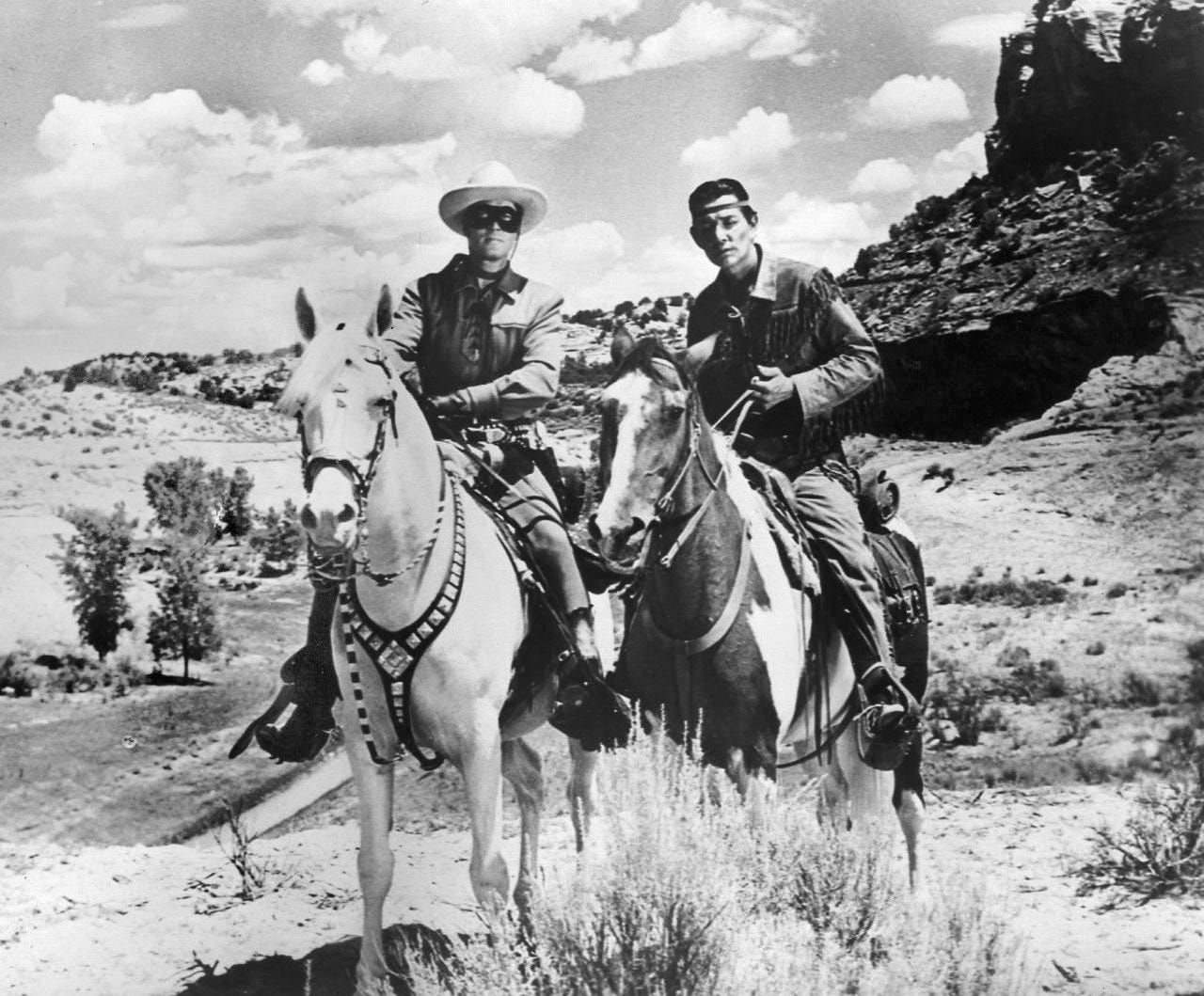
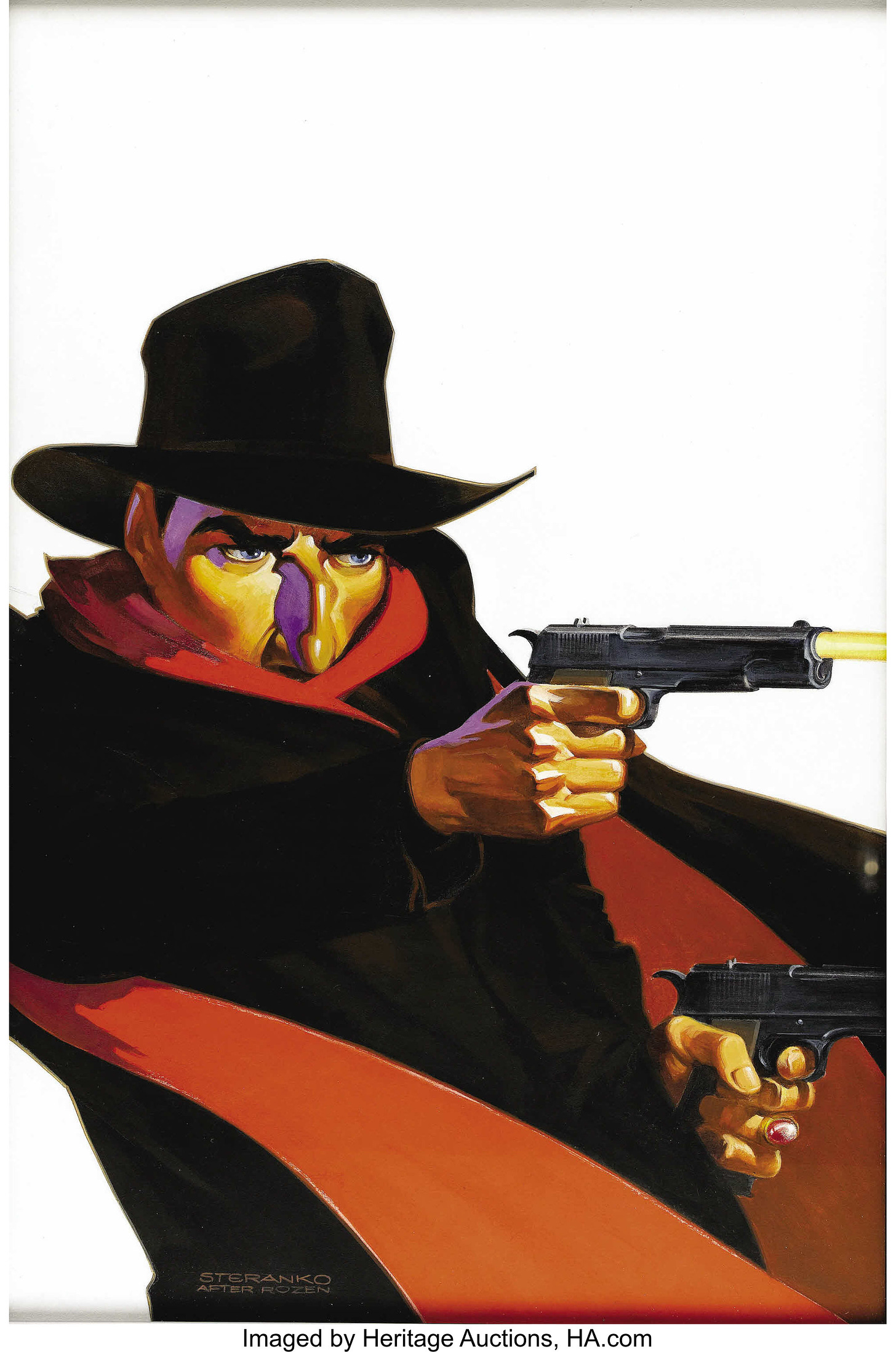
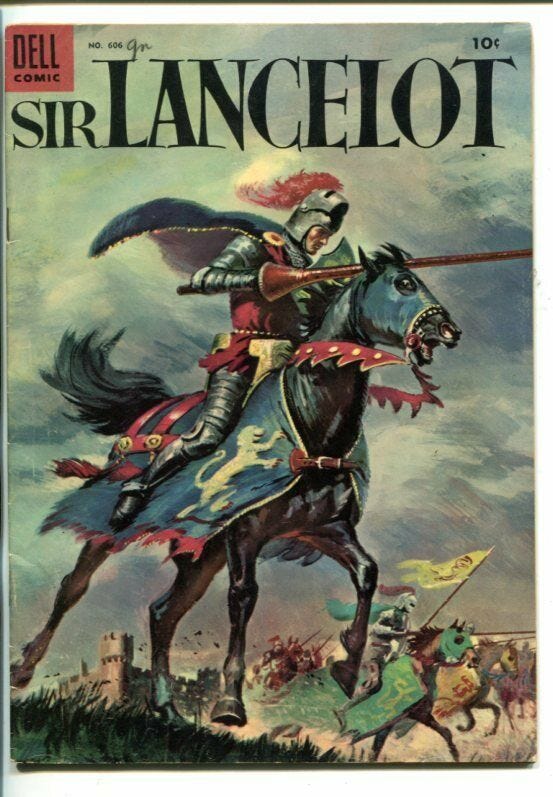
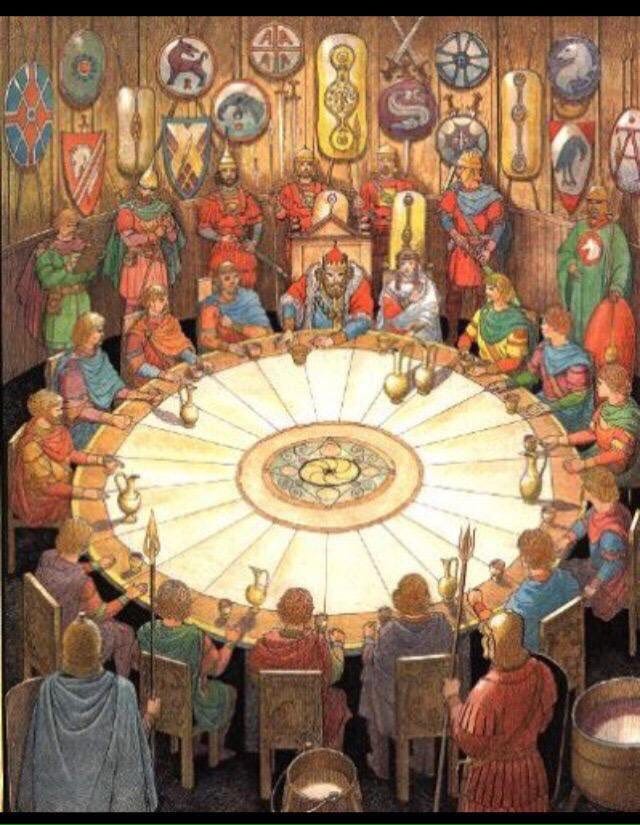
I think you're missing an element that goes a little farther back in American storytelling. We do have our myth, often closer to the original than we can see for the ancient myths: Paul Bunyan, Pecos Bill, Joe Magarac, John Henry... Some closer to real people than others. All the tall tales were foundational AMERICAN mythology, some are older than others. Honestly, I think that's the fascination with our old west in a lot of places... it's our age of myth.
Superheroes at their best are Human. Superman isn't a god come down to Earth. He's a human with the Powers of a god.
When superheroes forget that they are humans, they are starting down a Bad Path no matter what "good" they may still do.